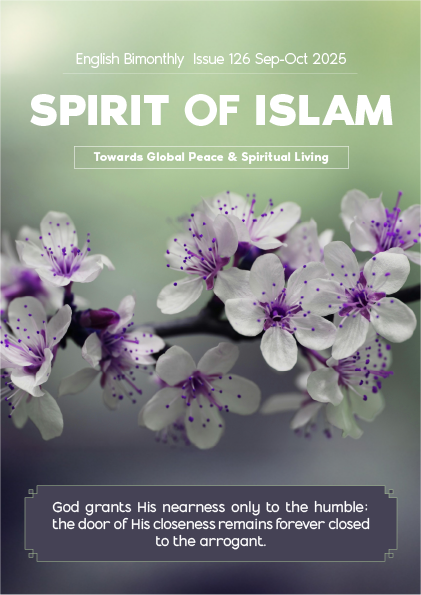Welcome to Spirit of Islam
A Magazine for the Journey of Life
Dear Readers,
Welcome to the Spirit of Islam magazine, a bimonthly publication dedicated to guiding you on a journey of spiritual enlightenment. Rooted in the profound wisdom of the esteemed Islamic scholar Maulana Wahiduddin Khan, a recipient of numerous national and international accolades, this magazine serves as a beacon for those seeking deeper understanding and inspiration.
Our readership spans diverse backgrounds, each finding unique and meaningful insights within our pages. The Spirit of Islam stands out by focusing on the core principles of reason and science, emphasizing the spirit of Islam over mere form and ritual. Each article is crafted either directly by Maulana Wahiduddin Khan, translated from his Urdu works, or developed by a team he has personally trained and guided.
In each bimonthly issue, Spirit of Islam:
1. Presents Islam in a contemporary context, helping readers rediscover Islam from its original sources.
2. Explains the Creation Plan of God for humankind, offering clarity and purpose.
3. Promotes Global Peace, addressing contemporary issues with wisdom and compassion.
4. Guides Readers through Life’s Challenges, providing practical and spiritual support.
5. Offers Spirituality to a broad audience, welcoming seekers from all walks of life.
6. Fosters Greater Communal Harmony, encouraging understanding and unity through religious insight.
Join us as we explore the profound depths of Islam, nurturing your spirit and enriching your journey through life.
-Team Spirit of Islam
